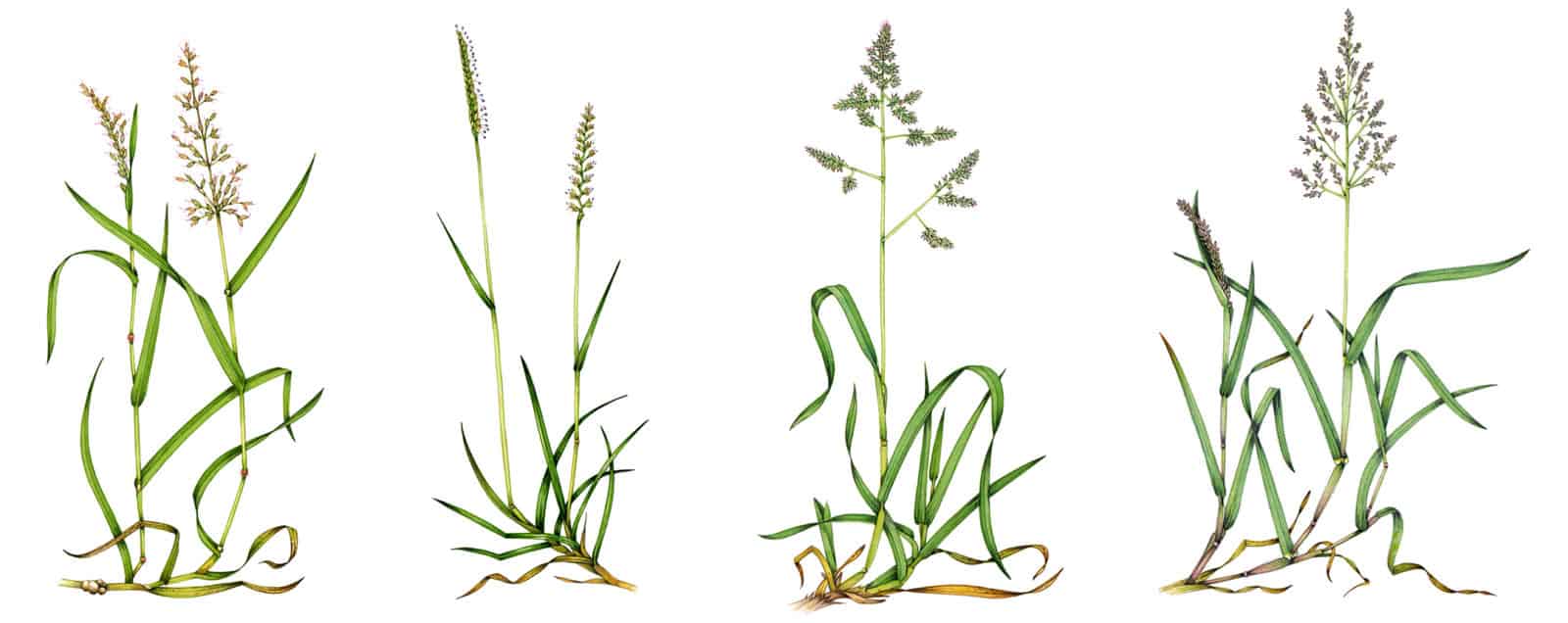I’m Lizzie Harper, a freelance natural history and botanical illustrator. I draw and paint a wide range of different species for publishers, charities, packaging, ad companies, and design agencies. I am expected to know something (often a lot!) about the plants and animals I’m commissioned to illustrate. As well as art school, I was lucky enough to do a Zoology degree, but this was many years ago now and a good deal of what I learned is now out of date.
Why Learn More?
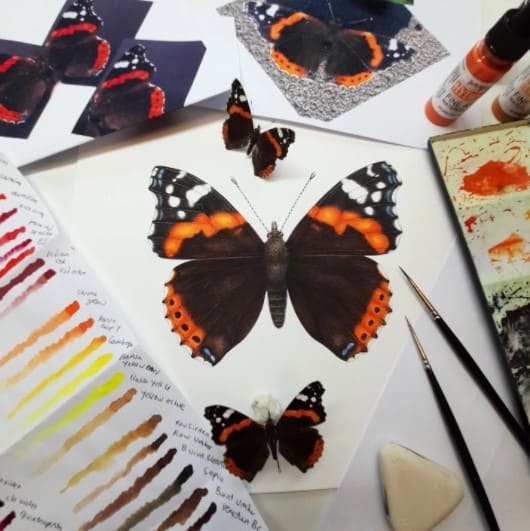
Topping up my botanical and natural history knowledge is vital, and one of the best (and most fun) ways I’ve found to do this is by taking Field Studies Council Courses. The more I know about a plant or an animal, the better able I am to understand it, and fit its form to its function. More understanding means better illustrations.
Over the past ten years I’ve taken a wide range of Field Studies Council courses. In all cases the tutors are enthusiastic and accessible, and the courses have taught me loads. Everyone on the sessions is fired up with the same passion for nature as me. It’s a comfortable and fun way to learn.
Field Studies Council Courses in 2022
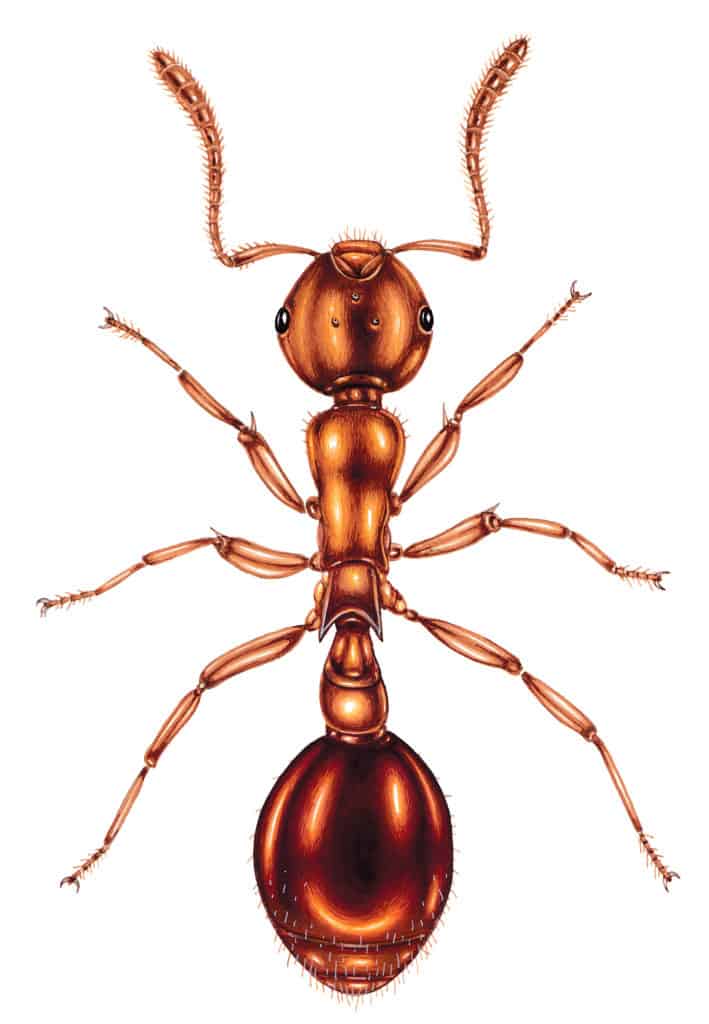
This year I’ve fallen head first into loving ants, after a job illustrating the Wood Ants of the Cairngorm National Parks, which made me realise how little I knew about these amazing insects. One course led to another. And another. I’ve now invested in a lovely new microscope and have a three-day residential course on identifying UK ants lined up, with Richard Becker.
Other ant experts that have got me hooked this year are Gino Brignoli and Mike Fox. See, that’s another amazing thing about these courses. You often get taught by experts in the field, scientists and ecologists who are currently working and provide these sessions on the side. This means what we get taught is current, and relevant.
I love having the space and time to draw as I look at specimens through the microscope, and having such knowledgeable tutors on hand to help with learning and identification.
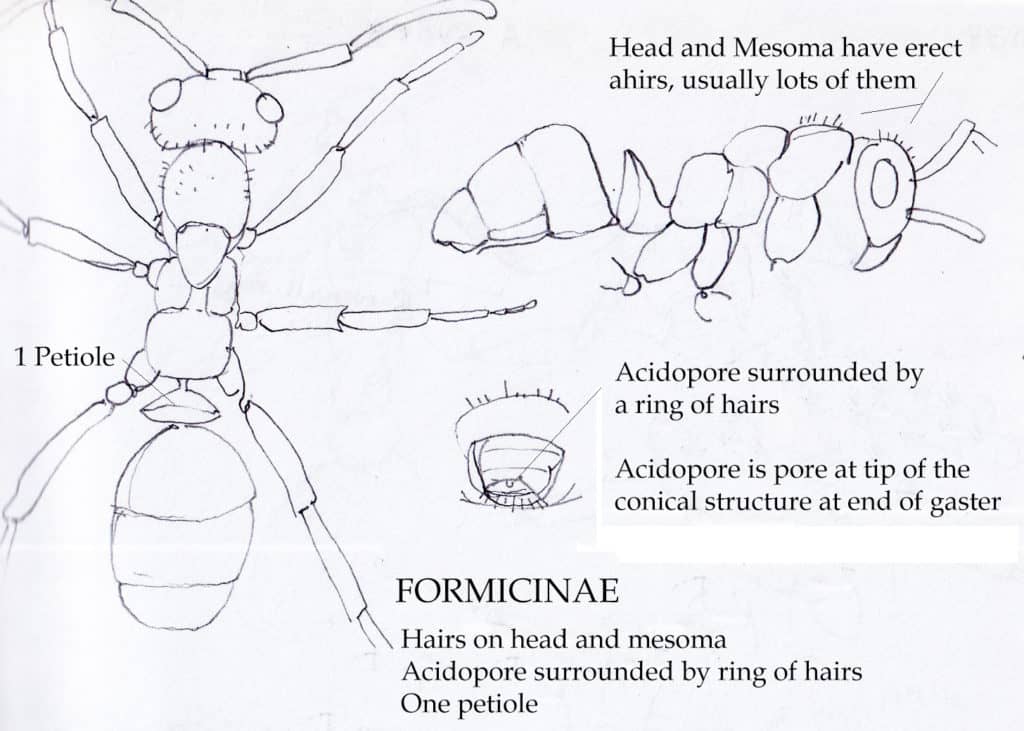
The ant courses are part of an incredible array of online and in-person sessions offered by a Field Studies Council project called BioLinks, running from 2018 – 2022. The funding allowed the organisers to keep costs absurdly cheap and it meant the courses were accessible to everyone.
I’ve also taken plenty of other courses not under the BioLinks umbrella.
This summer I did a fabulous course on identifying grasses with Fiona Gomersall. This helped me sort my sedges from my grasses and rushes. I also learned how to immediately spot lots of common UK grass species, both in flowering and vegetative states. This proved massively useful when I taught a two-day botanical illustration workshop on Painting Grasses at Cambridge University Botanic Gardens.
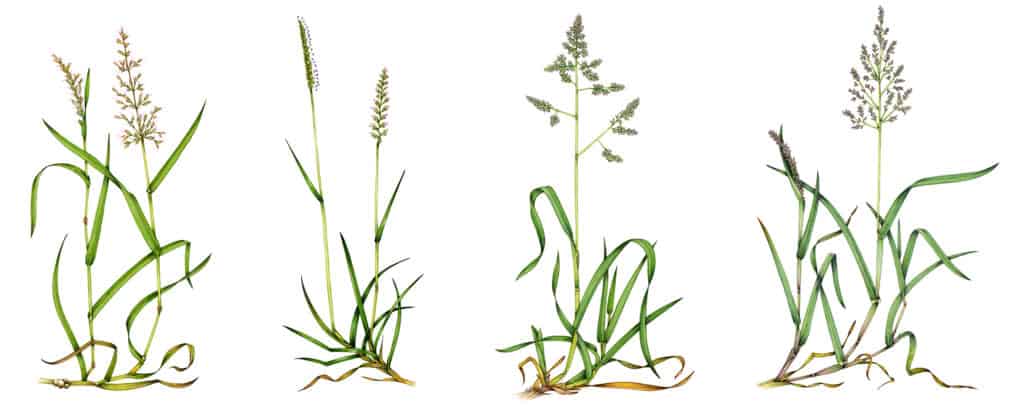
I’ve also taken courses on Social wasps with Ian Cheeseborough, and worms with Keiron Derek Brown; accessing online ones too, on subjects as diverse as the Biodiversity of Knepp, Soil health and dung beetles, and the importance of the Yellow Meadow-ant to ecosystem health.

Past Courses
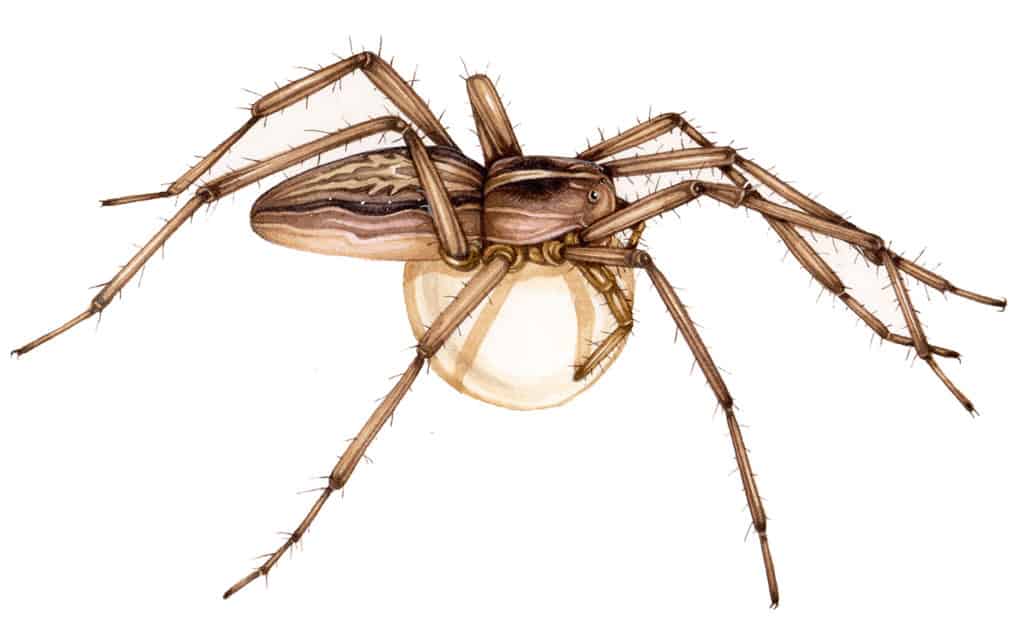
Another great thing about the Field Studies Council courses is how widely spread they are geographically. They have 24 centres across the UK, and a wide array of courses available at all of them. I’ve only been to a few sites; but want to take in Slapton Ley in Devon, Rhyd-y-creuau in North Wales, and Millport in Scotland.
In past years, I’ve loved learning about Pollinators down in Bushy Park in London, having a day in Epping Forest learning about bats, learning about Spiders at Bishops wood, and doing a residential course on Rocky shore ecosystems at Dale Fort.
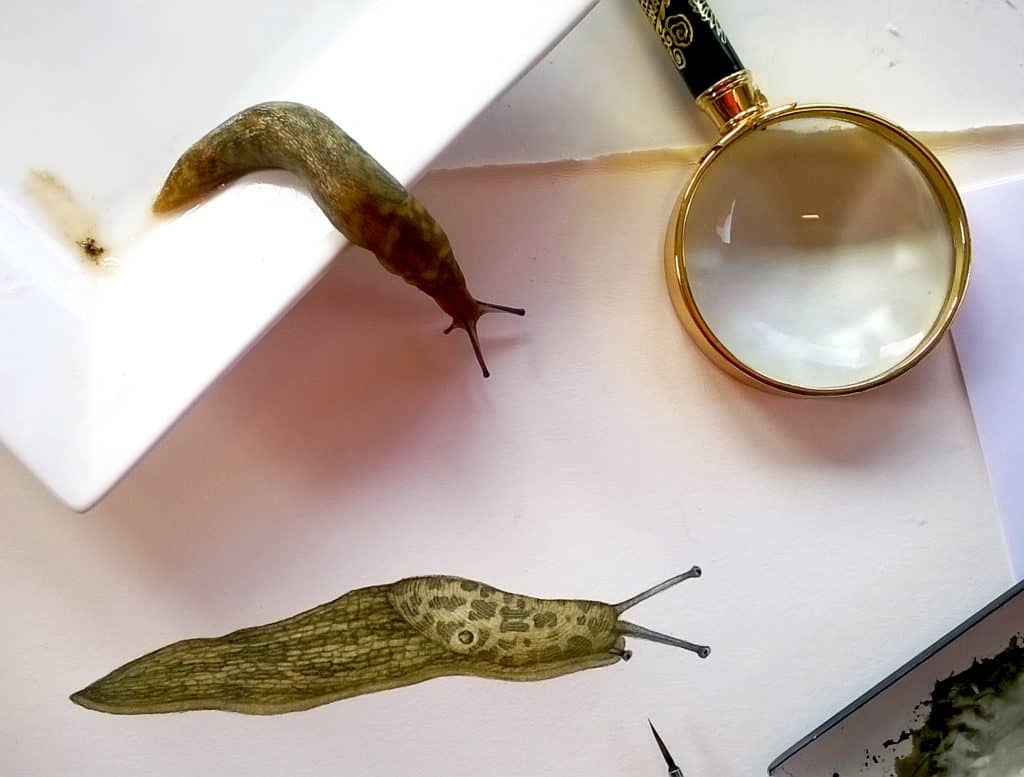
The focus on invertebrates reflects my favourite subject area rather than what’s on offer. And it has to be said that despite them being mammals, I was really pleased to learn lots about bats. I went with my sister; I bought her the course as a Christmas present and we both had an excellent day learning about how to help bats, UK species, and getting to use bat detectors to tell what species were swooping over a nearby lake at dusk.
A particular favourite was the Slugs course at Bishops Wood with Chris de Feu. Evolution of slugs, slug variety, media misrepresentation of slugs (no, really. And it was interesting too!), the fact that slugs evolved from snails not the other way around….it totally changed the way I see these maligned invertebrates.
The Rocky shore ecosystem course was wonderful. I learned a ridiculous amount, got to paddle about and find Pipe fish and Blue ray limpets, and chatted with a lot of lovely like-minded people as well as the expert tutor, John Archer-Thompson.
The best bit was that right after the course, I was commissioned to illustrate a Rocky Shore ecosystem for ‘The Hidden Universe’ by Alex Antonelli, so I had all the information needed at my fingertips.
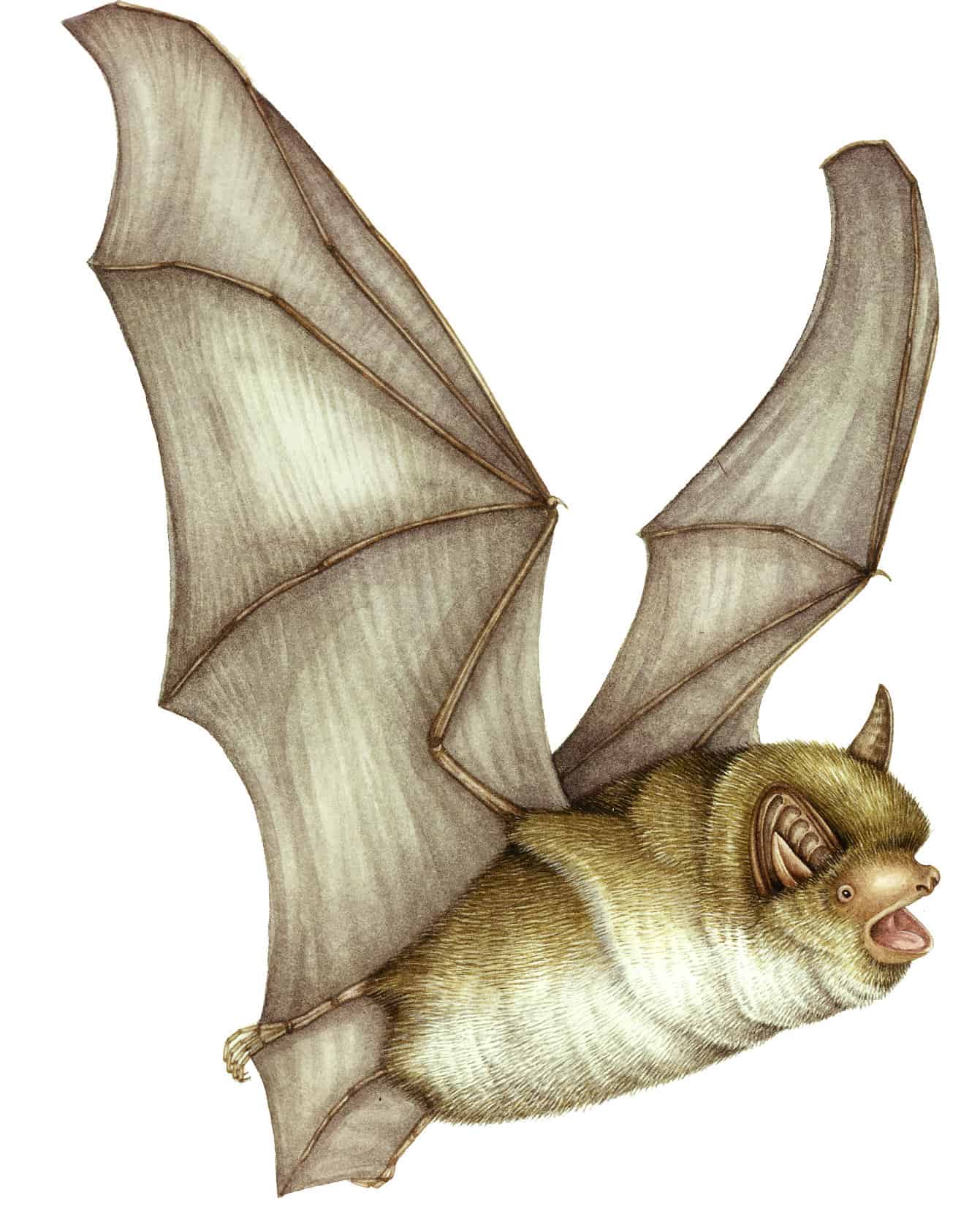
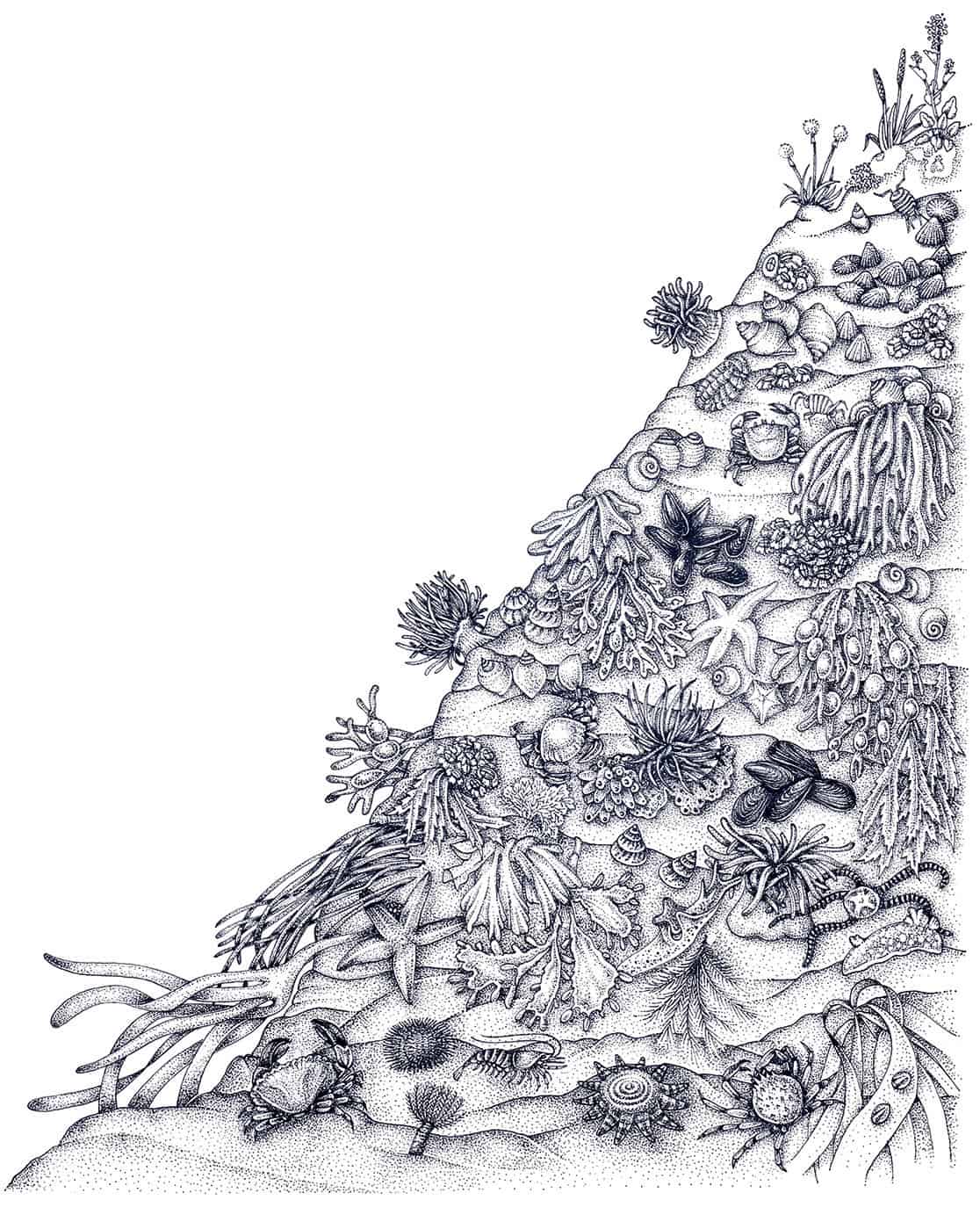
Life-long Learning with the Field Studies Council: I Love it!
For me, learning about the natural world is thrilling, and fills me with wonder. It re-charges my batteries, and helps remind me why nature is so important to me on a personal and professional level. It’s also very helpful with my job. I take copious notes when I’m doing courses, and often use these to write up blogs afterwards. These provide me with invaluable reference when out of the blue I’m asked to illustrate a harvestman or some sphagnum moss.
Every year I sit down with the Field Studies Council catalogue (or online) and flip through, like a child in a sweetie shop. I set a budget and mercilessly keep to it, despite temptation to throw financial cares out of the window do nothing but courses all year long. (Saying that, the courses offer great value for money, I think, even when not subsidised). Different subjects appeal at different times. I’ve barely scratched the surface of the birds, mammals, and fungi courses.
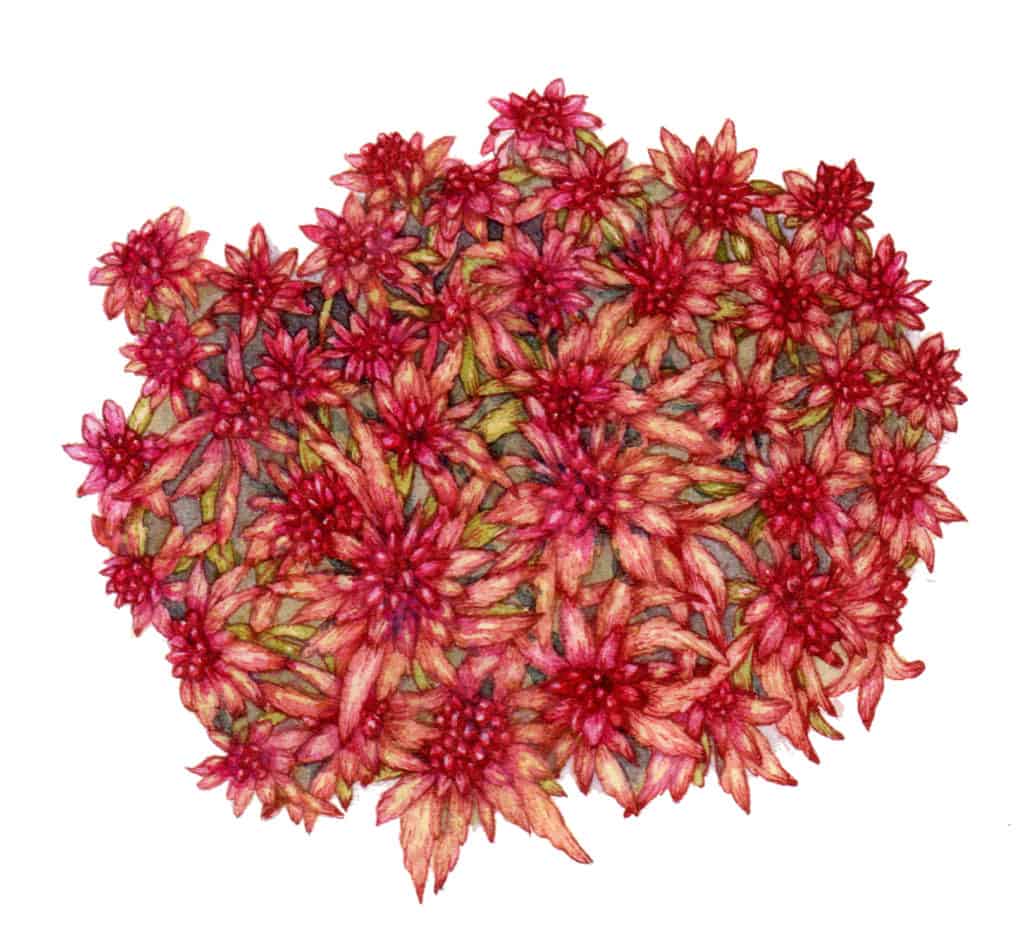
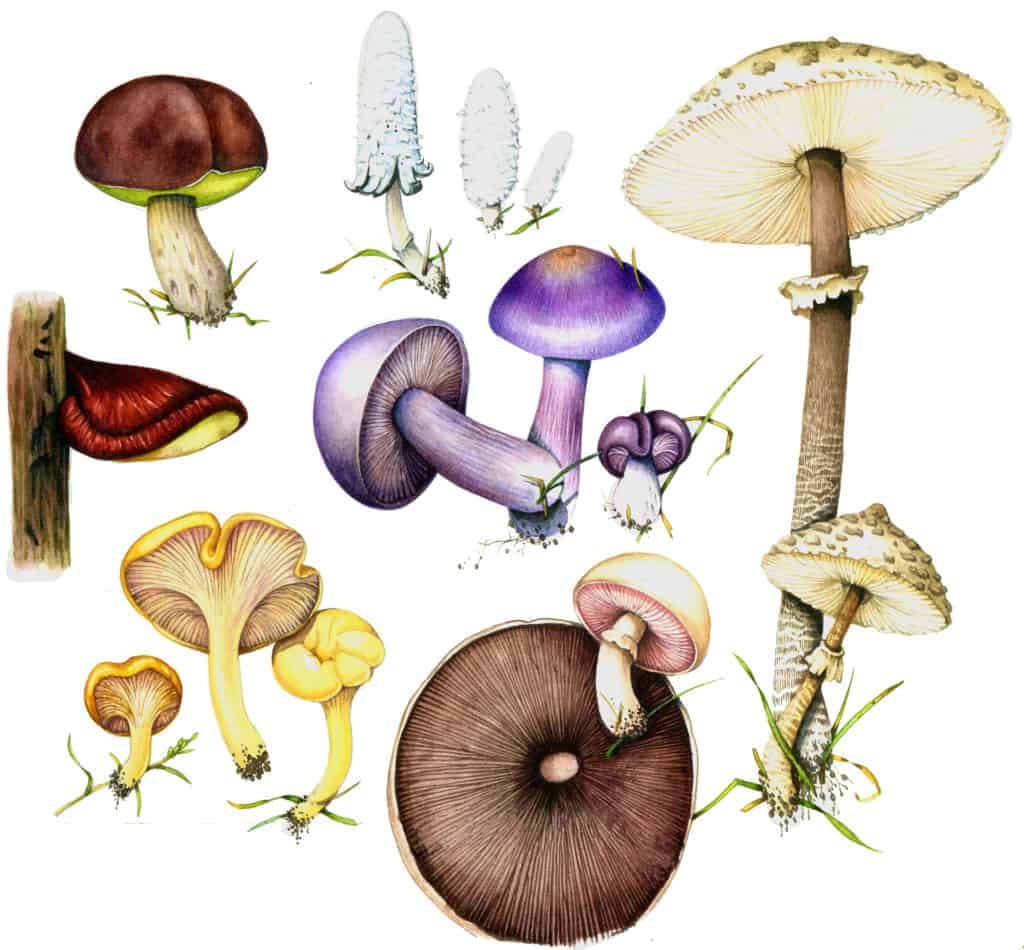
I guess that’s what I love about these courses. There’s always so much more to learn and be inspired by. It’s so easy to simply sign up and go along. And change the way you feel about a whole new corner of the natural world.
To see more of my work please visit my website; or follow me on:
- Instagram @lizzie_harper_illustration
- Facebook @LizzieHarperIllustration
- Youtube @LizzieHarper
- Twitter @lizzie_harper
- Or sign up to my Newsletter
Further Opportunities and Resources
If you fancy delving into the natural world and finding out more about one of the topics Lizzie has discussed, you can do so on our Natural History Courses!
Browse our Natural History Courses
Browse our Botanical Illustration Courses if you’d like to have a go yourself at illustration inspired by nature.
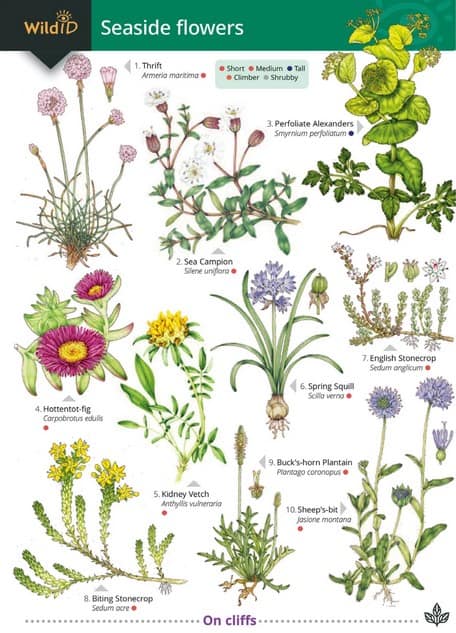
If you fancy owning a piece of Lizzie’s amazing artwork, you can purchase originals on her website – plus, we are delighted that some of her work features on our fold-out guides, the perfect addition to any naturalist’s bag:

